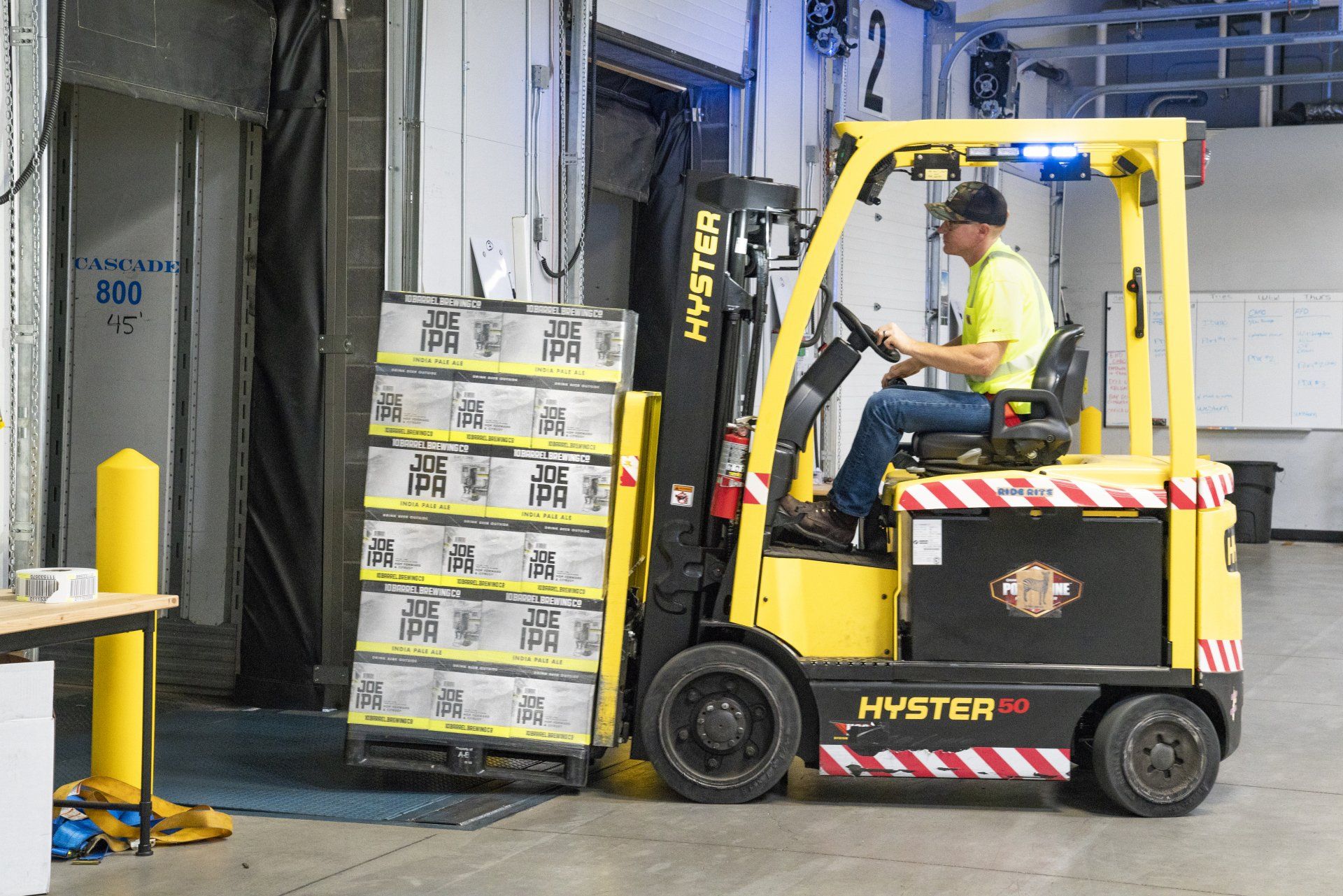Blog

Canada is a popular destination for people from all over the world, whether they are seeking work, education, or just visiting. Regardless of your reason for coming to Canada, having enough funds to support yourself is crucial. This blog will explain why financial stability is important for foreign workers, students, and visitors, and provide some tips on how to ensure you have enough money for a smooth stay in Canada. Cost of Living in Canada The cost of living in Canada can vary greatly depending on the city or province you choose to live in. Major cities like Toronto, Vancouver, and Montreal are significantly more expensive than smaller towns and rural areas, with rent often being three times more expensive in large cities. Here are some key expenses to consider: Housing: Rent or mortgage payments are typically the biggest expense. In big cities, renting a one-bedroom apartment can cost between CAD 1,200 to CAD 2,500 per month. Utilities: This includes electricity, heating, cooling, water, and garbage. Expect to pay around CAD 150 to CAD 200 per month. Food: Groceries for one person can cost around CAD 200 to CAD 300 per month. Eating out can quickly add to your expenses. Transportation: Public transport is an option in many cities, costing about CAD 100 to CAD 150 per month. If you plan to own a car, consider additional costs for insurance, fuel, and maintenance. Keep in mind that smaller cities and towns may not have effective public transportation, and owning a car may be more practical. Healthcare: While Canada has a public healthcare system, some services may not be covered. Private health insurance can help cover these extra costs. Employers may contribute to your health costs. Financial Requirements for Different Categories Foreign Workers When you come to Canada as a foreign worker, it's important to have enough funds to cover your initial expenses until you receive your first paycheck. This includes housing, food, transportation, and other daily expenses. Additionally, you may need to pay for work permits and other related fees. Employers might not always provide financial assistance upfront, so being prepared is key. International Students International students must show they have enough funds to cover tuition fees and living expenses for themselves and any accompanying family members. This requirement ensures that students can focus on their studies without financial stress. Besides tuition, students should budget for textbooks, school supplies, and other educational costs. Visitors Visitors to Canada need to demonstrate that they have enough money to cover their stay, including accommodation, transportation, and other daily expenses. This is particularly important for long-term visitors who plan to stay for several months. Having sufficient funds ensures you can enjoy your visit without worrying about running out of money. Benefits of Having Sufficient Funds Having enough funds offers several benefits for foreign workers, students, and visitors: Peace of Mind: Knowing you have enough money to cover your expenses allows you to focus on your purpose for being in Canada, whether it's working, studying, or exploring. Better Living Standards: Adequate funds mean you can afford better housing, food, and healthcare, contributing to a higher quality of life. Flexibility: With enough money, you have the flexibility to explore different cities, job opportunities, and educational options without immediate financial pressure. Emergency Preparedness: Unexpected expenses can arise at any time. Having a financial cushion helps you handle emergencies without added stress. Meeting Your Goals: Many people come to Canada with the expectation of sharing earnings with family members. Being aware of cost of living empowers you to meet your goals. Tips for Financial Planning Here are some practical tips to help you plan your finances before moving to Canada: Create a Budget: Estimate your monthly expenses based on the city you plan to live in. Include housing, utilities, food, transportation, and other essentials. Save in Advance: Start saving as early as possible. Having a financial cushion will make your transition smoother. Research Job Opportunities: Look for job opportunities in your field before you move. Having a job lined up can significantly ease financial stress. Understand the Currency: Familiarize yourself with the Canadian dollar (CAD) and its value compared to your home currency. This will help you better manage your finances. Consider Financial Assistance: Explore scholarships, grants, or financial aid if you are a student. For workers, some employers offer housing assistance. Staying in Canada as a foreign worker, student, or visitor is a rewarding experience, but being financially prepared is essential. By understanding the cost of living, meeting financial requirements, and planning your finances carefully, you can ensure a stable and enjoyable stay in Canada. Remember, having enough funds is not just about meeting immigration rules; it’s about securing your future and making the most of your time in this beautiful country. Ready to take the next step towards your Canadian dream? Visit immigrate.biz today and connect with our best-in-class immigration experts. We'll help you navigate the financial requirements and make your journey to Canada smooth and successful. Let’s make your Canadian dream a reality!

Are you dreaming of a new life in Canada? Rural Canada offers unique and exciting opportunities that might be perfect for you. Here's a look at why moving to these areas can be a great choice and how to get started. Why Consider Rural Canada? 1. Peaceful Lifestyle: Rural areas are known for their quiet and spacious environment. It's a big change from the busy city life, offering a calm and friendly community. 2. Job Opportunities: Many rural areas in Canada are growing fast and need more workers. Jobs in farming, health care, and technology are often available. 3. Affordable Living: In rural Canada, the cost of living is usually lower. This means you can save money on housing and other daily expenses. Special Immigration Programs Canada has special programs to help people move to rural areas. These programs are designed to make your move smoother and support you as you settle in your new home. 1. Rural and Northern Immigration Pilot: The Rural and Northern Immigration Pilot (RNIP) is a community-driven program. It’s designed to spread the benefits of economic immigration to smaller communities by creating a path to permanent residence for skilled foreign workers who want to work and live in one of the participating communities . 2. Atlantic Immigration Program: The Atlantic Immigration Program is a pathway to permanent residence for skilled foreign workers and international graduates from a Canadian institution who want to work and live in 1 of Canada’s 4 Atlantic provinces—New Brunswick, Nova Scotia, Prince Edward Island or Newfoundland and Labrador. The program helps employers hire qualified candidates for jobs they haven’t been able to fill locally. 3. Provincial Nominee Programs (PNP): The provincial nominee program (PNP) is for workers who have the skills, education and work experience to contribute to the economy of a specific province or territory want to live in that province or territory want to become permanent residents of Canada Each province and territory has its own “streams” (immigration programs that target certain groups) and requirements. For example, in a program stream, provinces and territories may target students business people skilled workers semi-skilled workers How to Start? 1. Research: Learn about different rural areas in Canada and what they offer. Check if they have special programs for people moving from other countries. 2. Check Eligibility: Each program has its own rules on who can apply. Make sure you meet these requirements before you apply. 3. Prepare Your Application: Gather all the needed documents such as your resume, language test results, and any work references. Make sure everything is complete and clear. 4. Apply: Once you choose a program and prepare your application, it's time to apply. Follow the instructions carefully to make sure your application is accepted. Moving to rural Canada can be a big step towards a new and exciting life. With special immigration programs, the process can be easier and faster. Start planning today and you could soon be enjoying the beautiful landscapes and welcoming communities of rural Canada. For more information on how to apply and get started, visit immigrate.biz .

Are you a French speaker considering moving to Canada? Great news! Canada has updated its immigration programs to better accommodate French speakers, recognizing the unique contributions they make to the country's cultural and economic fabric. Here's what you need to know about the latest opportunities. Why Canada Values French Speakers Canada places high importance on maintaining a strong bilingual national identity. French, being one of the two official languages, is particularly valued not just in Quebec but across the country. The latest policies aim to support and grow French-speaking communities outside Quebec, enriching the nation's multicultural mosaic. Latest Updates to Immigration Programs for French Speakers Targeted Express Entry Draws What’s new? Canada has implemented targeted draws within the Express Entry system specifically for French speakers. The most recent draw on February 1, 2024, invited 7,000 candidates with strong French language skills, offering a more straightforward path to permanent residency . 2. New Francophone Immigration Policy What’s new? Canada's Francophone Immigration Policy aims to support and grow French-speaking communities in Canada. The program focuses on attracting French-speaking immigrants and helps them settle and thrive in new environments. It includes steps to make the immigration process smoother for French speakers and involves various government and community partners to ensure these immigrants can successfully integrate and contribute to the local culture and economy. This initiative impacts French-speaking immigrants by providing them with more opportunities and support throughout their move to Canada. For more information, you can explore the policy in detail here . 3. Enhanced Support for Integration What’s new? Alongside boosting numbers, there’s a solid plan for enhancing the settlement services for French-speaking newcomers. This involves better access to community services, language training, and employment assistance tailored to the needs of Francophone immigrants . How to Apply Check Eligibility: Review the criteria for the updated programs on the official Canadian immigration website. Prepare Documentation: Gather all necessary documents, including language test results, educational credentials, and work experience details. Submit an Application: Apply through the Express Entry system, specifically watching for targeted draws for French speakers. Tips for a Successful Application Language Proficiency: Ensure your French language skills are well-documented and certified through approved language tests. Stay Informed: Immigration policies can change. Keep up with updates by checking the official Canadian immigration website or engaging with immigration professionals. Plan Your Settlement: Think about where you want to live and work in Canada. Understanding the local job market and French-speaking communities can help you integrate more smoothly. Canada's updated immigration programs for French speakers reflect a welcoming approach, emphasizing the importance of diversity and linguistic skills. Whether you aim to settle in Quebec or another region, these changes open new doors for French speakers looking to make Canada their new home. Ready to explore these opportunities? Visit immigrate.biz for detailed guidance and support in navigating these exciting immigration pathways!

In 2024, hiring the right team is critical for restaurant success. Let's explore effective strategies and tools to overcome staffing challenges and thrive. Identify Your Staffing Needs: Before recruiting, understand the specific roles and skills your restaurant requires. This clarity helps in creating targeted job descriptions that attract the right candidates. Craft Compelling Job Descriptions: Move beyond basic job listings. Highlight what makes your restaurant a great place to work — like core values, competitive wages, and a commitment to diversity and safety. Optimize Job Posting Strategies: Rather than posting everywhere, focus on platforms specific to the restaurant industry for quality applicants. Use your current staff's networks for referrals, which can bring in highly compatible candidates. Seek the Right Fit Over Just Skills: Hire for cultural fit and values alignment, not just skills — which can be taught. During interviews, assess candidates' emotional intelligence and work ethic to find those who truly match your restaurant’s ethos. Onboard and Train Effectively: Proper training and onboarding are crucial. A structured onboarding process, even simplified through tools like Toast Mobile Order & Pay™, can significantly reduce the learning curve and integrate new hires more effectively. Embrace Technology and Data: Utilize technological solutions like Immigrate to streamline hiring, especially for international talent. Technology can reduce costs and time involved in recruitment, ensuring compliance and simplifying processes. Advanced tools also help in managing staff schedules and improving overall operational efficiency. Adapt to Reduce Turnover: Understanding employee motivations and providing a supportive work environment can significantly reduce turnover. Offer competitive pay, flexible schedules, and a positive workplace culture to retain staff. Implementing tech solutions can enhance efficiency, allowing staff to focus on delivering great service rather than administrative tasks. Ready for a Change? Step up your hiring game with Immigrate. We simplify the process of finding and welcoming global talent, combining expert immigration support with powerful technology. Join us today to transform your restaurant's hiring approach and thrive in the dynamic 2024 market. Start Here

Great news! In 2024, there are many opportunities for international workers in Canada. Before you start, let's explain a key term: LMIA. LMIA stands for Labour Market Impact Assessment. It's a document Canadian employers need to hire workers from other countries. It shows that there is a need for a foreign worker to fill a job. Top 10 LMIA Jobs in 2024 and Their Salary Ranges: Healthcare Workers There is a high demand for healthcare professionals, especially nurses and caregivers. With an aging population, more helpers are needed in healthcare. Salary Range: $50,000 - $90,000 per year Truck Drivers Due to Canada's vast distances, there is a big need for truck drivers to move goods across the country. Salary Range: $45,000 - $70,000 per year IT Professionals As the world becomes more digital, Canada needs more IT experts. This includes software developers and network administrators. Salary Range: $60,000 - $100,000 per year Engineers Canada is looking for engineers for many projects. This includes civil, mechanical, and electrical engineers. Salary Range: $65,000 - $100,000 per year Farm Workers Canada's large agriculture sector needs workers for tasks like planting and harvesting. Salary Range: $30,000 - $50,000 per year Construction Workers There is a boom in construction with many jobs available. This includes carpenters, plumbers, and electricians. Salary Range: $40,000 - $80,000 per year Hospitality Staff Hotels and restaurants need staff to help serve customers. This includes chefs, servers, and hotel staff. Salary Range: $30,000 - $60,000 per year Welders There is a demand for skilled welders in manufacturing and construction projects. Salary Range: $40,000 - $70,000 per year Fishery Workers The fishing industry is significant, especially on the coasts, requiring workers for various tasks. Salary Range: $30,000 - $50,000 per year Skilled Workers This broad category includes various trades and skilled labor, such as electricians, mechanics, and machinists, who are essential to many sectors. Salary Range: $40,000 - $80,000 per year How to Get Started: Check Requirements: Ensure you have the necessary skills and experience. Apply for a Work Permit: You need this to work in Canada. Connect with Employers: Use job boards, networking, and platforms like Immigrate.biz to find job opportunities. Canada is a fantastic place to work, and with these in-demand LMIA jobs, it's an exciting time to consider moving. Jumpstart your journey to a fulfilling career in Canada today! Don’t miss the chance to live and work in one of the world's most welcoming countries. Explore top jobs, connect with employers, and get expert guidance every step of the way. Click here to find your perfect job match on Immigrate.biz today and let's make your Canadian dream come true together!

When it comes to hiring international workers, Canadian employers must consider several crucial factors, one of the most significant being the processing time for work permits. This timeframe can vary greatly and is influenced by where the applicant is applying from. Understanding these variations can help both employers and workers set realistic expectations and plan effectively. 1. Factors Influencing Processing Times Processing times for work permits can change due to several reasons: Volume of Applications : Certain times of the year see a surge in applications, which can slow processing for everyone. Applicant's Home Country : The infrastructure and staffing of Canadian visa offices in different countries can affect processing times. Countries with more resources can often process permits faster. Type of Work Permit : Permits requiring additional checks, like those with a Labor Market Impact Assessment (LMIA), can take longer to process. 2. Impact on Employers Employers need to fill positions by specific dates, particularly in sectors facing labor shortages or seasonal demands. Longer processing times can influence their choice of candidates, often preferring those from countries with faster processing times to ensure timely staffing. 3. What Employers and Workers Can Do Here are some strategies to manage the impact of varying processing times: Early Application : Applying well in advance can mitigate delays. Accurate and Complete Applications : Ensuring all documents are correct and complete can prevent processing hold-ups. Stay Informed : Keeping updated with the latest processing times for different countries helps in planning and setting expectations. 4. Understanding and Patience For international workers, being aware of how processing times can differ depending on their home country is vital for planning their move. Employers, too, benefit from understanding these differences as it helps in strategic planning and effective recruitment. Understanding and navigating the complexities of work permit processing times is crucial for both employers and international workers planning to work in Canada. By staying informed and preparing your applications carefully, you can help ensure a smoother process. Ready to take the next step in your Canadian work journey? Visit the Government of Canada's work permit processing times page to find the most current processing times based on your country of origin. Equip yourself with the knowledge you need to plan effectively and start your experience in Canada with confidence. For additional support and expert guidance, consider connecting with Immigrate. Our platform connects Canadian employers and international workers with top immigration professionals to simplify the process of obtaining a Canadian work permit. Explore our services at immigrate.biz and discover how we can help you achieve your Canadian dreams. Begin your journey today—check your processing times and explore how Immigrate can assist you in navigating the path to working in Canada!

Canada is a top destination for those looking to start a new life, thanks to its friendly communities, diverse cultures, and abundant job opportunities. Let’s explore the most common cities where immigrants settle in Canada, detailing the major job sectors, languages spoken, and what makes each city appealing. 1. Toronto, Ontario Toronto is a vibrant hub for immigrants, with nearly half its population born outside of Canada. It boasts a rich mosaic of cultures, with large communities from India, China, and the Philippines. The city’s major job sectors include finance, technology, and healthcare, offering a dynamic urban environment with numerous opportunities. English is the primary language, though over 160 languages are spoken here. 2. Vancouver, British Columbia This city is favored by immigrants from China, the Philippines, and South Korea, known for its scenic beauty and mild climate. Vancouver's economy is robust, with thriving film, technology, and tourism sectors. English and Chinese dominate the linguistic landscape. Key jobs are in film production, technology, and services related to its status as a popular tourist destination. 3. Montreal, Quebec Montreal is a charming blend of North American and European cultures, attracting immigrants from France, Haiti, and North Africa. French is essential, with the city hosting vibrant arts, aerospace, and technology sectors. Opportunities abound in aerospace, tech, and creative industries, reflecting its rich cultural tapestry. 4. Calgary, Alberta Known for its high standard of living, Calgary attracts immigrants with job opportunities in the energy sector, technology, and logistics. It has significant communities from India, the Philippines, and Nigeria, with English being the predominant language. The city offers roles in energy, clean tech, and transportation, along with hosting the famous Calgary Stampede. 5. Ottawa, Ontario As Canada’s capital, Ottawa offers stability with its public sector jobs and a growing technology sector. It has sizeable Chinese and Arabic-speaking communities. Both English and French are vital due to the bilingual nature of government work. Key employment areas include public administration, technology, and education. 6. Halifax, Nova Scotia Emerging as a destination due to its lower cost of living and expanding job market in tech and public sectors, Halifax has main immigrant populations from the UK, China, and Arab countries. The city provides a community-focused environment with opportunities in technology, healthcare, and maritime industries. 7. Winnipeg, Manitoba Winnipeg offers affordability and a strong community feel, attracting groups from the Philippines, India, and Nigeria. It has a diverse economy with sectors like manufacturing, healthcare, and education thriving. English is the main language, supplemented by a significant French-speaking community. Why Choose These Cities? These cities are not just places to live but also vibrant communities that offer: Diverse job opportunities across various industries, ensuring economic stability and growth. Cultural diversity , which eases cultural integration and offers extensive community support. Educational and professional resources to help immigrants succeed in their new environment. Choosing where to live and work is a significant decision, especially when moving to a new country. Each of these Canadian cities provides unique opportunities and communities to help immigrants find both a new home and a new career. Ready to Start Your New Life in Canada? Each city in Canada offers unique opportunities and communities, making it an ideal destination for immigrants seeking both a new home and a thriving career. If you're considering moving to Canada and need help navigating the immigration process, connect with us at Immigrate . Our platform links you to top immigration experts who can guide you every step of the way—from choosing the right city to finding your dream job. Visit us at immigrate.biz to learn more and start your journey to a successful life in Canada today!

If you're dreaming of moving to Canada, you're not alone. Many people around the world see Canada as a land of opportunity. One key step to making this dream a reality is getting a job offer from a Canadian employer. Here's why a job offer is so important for your Canadian journey. Boost Your Immigration Chances A job offer from a Canadian employer can greatly increase your chances of being accepted for immigration. Many Canadian immigration programs, like the Express Entry system , give extra points to applicants with job offers. This can help you get an Invitation to Apply (ITA) faster. In the Express Entry system, having a valid job offer can add up to 200 points to your Comprehensive Ranking System (CRS) score. This boost can make a significant difference in your ranking and speed up the immigration process. Pathway to Permanent Residence Some immigration programs require a job offer to apply for permanent residence. For example, the Provincial Nominee Programs (PNP) often need you to have a job offer in a specific province. Each province in Canada has its own PNP with different requirements, but most of them prioritize candidates with job offers. This means that your job offer can be your ticket to becoming a permanent resident of Canada. Having a job offer not only meets the criteria of many PNPs but also shows that you have a specific role waiting for you in Canada, which can make your application more compelling. Financial Stability Moving to a new country can be expensive. Having a job offer means you'll have a source of income when you arrive. This can help you settle in more comfortably and support your family. It also shows immigration officials that you can support yourself financially, which is a key requirement for many immigration programs. Financial stability is crucial when starting a new life in a different country. It ensures that you can cover your living expenses, find suitable housing, and provide for your family’s needs without financial stress. Employer Support When you have a job offer, your employer can often help with your immigration process. They may provide necessary documents, support your application, and even help you adjust to your new life in Canada. This support can make the immigration process smoother and less stressful. Many employers are familiar with the immigration process and can guide you through it, making sure you meet all the requirements and deadlines. Some employers even have dedicated HR teams to assist international hires with their transition to Canada. Real-World Experience A job offer gives you the chance to gain Canadian work experience. This is valuable not only for your immigration application but also for your career. Canadian work experience is highly regarded and can open doors to better job opportunities in the future. Working in Canada allows you to understand the local work culture, improve your English or French language skills, and build a professional network. These experiences can be beneficial if you decide to change jobs or seek advancement in your career. Community and Network Having a job in Canada means you'll start building a network of colleagues and friends. This can help you feel more connected and supported in your new country. It also helps you integrate into Canadian society more quickly. Being part of a workplace community provides social support and helps you learn more about Canadian customs and lifestyle. Your colleagues can offer valuable advice on living in Canada, and you might even make lifelong friends. Steps to Getting a Job Offer Research: Look for Canadian companies that need workers in your field. Understand which industries are in demand and target those sectors. You can also check Immigrate's Job Board , for the best fit. Tailor Your Resume: Make sure your resume meets Canadian standards. Highlight your skills and experiences that match the job requirements. Apply Online: Use job boards like Indeed, LinkedIn, and the Canadian Job Bank. Create profiles on these platforms and set up job alerts for positions that match your skills. Network: Connect with people in your industry who might know of job openings. Attend industry events, join professional associations, and use social media to expand your network. Prepare for Interviews: Practice your interview skills to make a good impression. Understand the common questions asked in Canadian job interviews and prepare your answers accordingly. A job offer is a crucial step in achieving your Canadian dream. It can improve your immigration chances, provide financial stability, and help you settle into your new life. Start your job search today and take the first step towards making Canada your new home. For more help with your immigration journey, visit immigrate.biz . Our platform connects you with top immigration experts and provides the tools you need to succeed.

When you're moving to Canada, choosing the right help is key to a successful immigration process. Two common professionals you might consider are an immigration lawyer and a Regulated Canadian Immigration Consultant (RCIC). It's important to understand how they differ so you can make the best choice for your needs. What is an Immigration Lawyer? An immigration lawyer is a qualified attorney who knows a lot about legal issues. They have studied law extensively and are allowed to represent you in court. This knowledge is especially helpful if you have a complicated case, such as an appeal against a denied application or if you're dealing with legal issues that could impact your immigration status. What is an RCIC? An RCIC specializes in immigration advice and services for Canada. They are not lawyers, but they have good training in Canadian immigration law. RCICs are approved by the Canadian government to help people with their immigration applications. This includes filling out forms correctly and making sure you have the right documents. Key Differences Education and Licensing: Lawyers go to law school and must pass tough exams to practice law. They understand broad legal concepts that can apply to many areas, including immigration. RCICs take specific courses in immigration law and must pass an industry-specific exam. They are experts in immigration procedures but do not handle legal representation beyond administrative immigration proceedings. 2. Services Offered: Lawyers can go to court, interpret and apply immigration laws, and deal with complex legal issues. They can handle any legal disputes, represent you in hearings, and provide legal advice. RCICs focus on the administrative side of immigration, like helping you fill out applications correctly, advising on the best immigration programs, and ensuring your documentation is complete. They do not represent clients in court. 3. When to Choose Which? Choose an immigration lawyer if your situation involves legal complexities, if you need legal representation, or if you anticipate challenges that may require defending your rights in court. Choose an RCIC if your needs are straightforward, such as applying for visas, work permits, or permanent residency without any legal hurdles. Making Your Choice Decide based on your specific needs. An RCIC is excellent for most immigration streams, like work permits and permanent residency, given their focus on Canadian immigration rules. For legal complexities or challenges, an immigration lawyer can offer crucial legal assistance. Whether you need straightforward application guidance or legal advice for more complex immigration issues, choosing the right professional is your first step towards a successful move to Canada. If you're ready to begin, visit Immigrate to connect with top immigration experts. Let's make your Canadian dream a reality—get started today!

When Canadian employers need to hire workers from other countries, they often navigate a process involving a Labour Market Impact Assessment (LMIA). This assessment is crucial for ensuring that the hiring of a foreign worker does not negatively impact the Canadian job market. Here, we’ll explore what LMIA-approved and LMIA-pending jobs are, and why they matter to both employers and international workers. What is an LMIA? An LMIA is a document required by Canadian employers who want to hire foreign workers. It proves that there is a genuine need for a foreign worker to fill a job and that no Canadian worker is available for the position. What is an LMIA-Approved Job? An LMIA-approved job is one where the Canadian government has given a positive or neutral assessment. This means the government agrees that: No suitable Canadian candidate was found to fill the role. Hiring a foreign worker will not negatively affect the Canadian workforce. Benefits for workers: A positive LMIA is crucial for obtaining a Canadian work permit and can significantly enhance a foreign worker's prospects for permanent residence in the future. Benefits for employers: It allows the legal employment of a foreign worker, helping to fill critical workforce gaps. What is an LMIA-Pending Job? An LMIA-pending job is a position for which an employer has applied for an LMIA but has not yet received approval. During this time, the job cannot be filled by a foreign worker, and the outcome of the application is still uncertain. Process Overview: Job Advertising: Employers must demonstrate they have tried to hire Canadians first by advertising the job locally. LMIA Application: The employer submits a detailed application to Service Canada. Government Assessment: Officials review the application to decide if a foreign worker should be hired. Implications of an LMIA-Pending Job: For workers: You cannot apply for a work visa based on a pending LMIA job offer. But, it may be worth applying for the job itself during this stage once the LMIA is approved it might be the employer fill the position already. For employers: There is a waiting period where they cannot proceed with hiring the foreign worker until approval is given. Why Does This Matter? For foreign workers, understanding the status of your job offer (LMIA-approved versus LMIA-pending) is key to planning your immigration and employment strategy in Canada. An LMIA-approved job simplifies obtaining a work visa and paves the way for permanent residency. For employers, navigating the LMIA process efficiently is essential for meeting labor shortages and planning business operations effectively. Whether you are a prospective international worker aiming to live and work in Canada, or an employer looking to fill a vacancy, knowing the difference between LMIA-approved and LMIA-pending jobs is crucial. This knowledge helps in making informed decisions about employment and immigration, ensuring compliance with Canadian laws and smoothing the path to achieving your goals in Canada. If you're an employer looking to navigate the LMIA process, or an international worker seeking opportunities in Canada, we're here to help. At Immigrate, we connect Canadian employers and international workers with top immigration experts to ensure a smooth, successful path to achieving your immigration goals. Don't wait to start your journey. Visit immigrate.biz today to learn more about our services and how we can assist you in turning your Canadian dream into reality. Join us and give yourself the best chance of success in the Canadian job market! Start Your Journey with Immigrate


